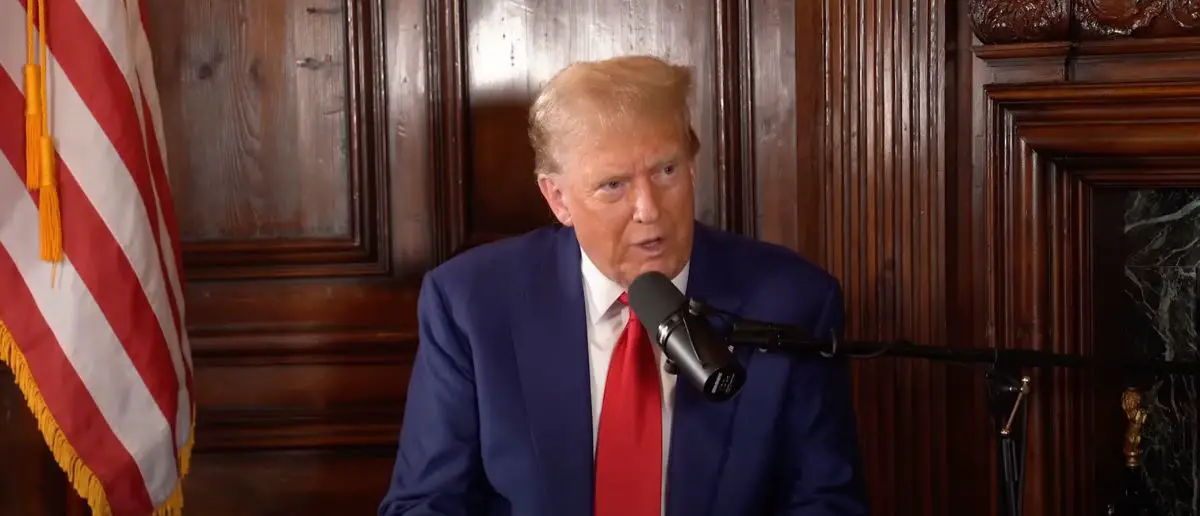
A major case has just been ruled on. It has huge consequences for the entire nation.
As a federal court has blindsided President Trump with a massive ruling he didn’t see coming.
A federal appeals court recently ruled against a longstanding federal law that prevents young adults from purchasing handguns until they are 21, finding that the law violated the Second Amendment of the U.S. Constitution. The decision, issued by a panel of three judges on the conservative-leaning 5th U.S. Circuit Court of Appeals in New Orleans, comes on the heels of a landmark Supreme Court ruling in 2022 that expanded firearm rights for Americans.
The 5th Circuit’s ruling found that individuals between the ages of 18 and 20 should not be prohibited from purchasing handguns. The court emphasized that the Second Amendment’s protections apply to all “the people,” which includes young adults in this age range. The court stated, “Ultimately, the text of the Second Amendment includes eighteen-to-twenty-year-old individuals among ‘the people’ whose right to keep and bear arms is protected.” The case was remanded back to a lower court for further action.
Historically, the 5th Circuit had upheld the age restriction, but the 2022 Supreme Court decision has changed the dynamics of how courts view gun regulations. In that case, the high court ruled that restrictions on firearms must be grounded in the nation’s historical traditions. Following that ruling, several lower courts across the country, including those in Minnesota, Virginia, and Texas, struck down similar age-related gun purchase bans.
The Biden administration had actively opposed these rulings, which have become a flashpoint in the ongoing national debate over gun control. While it is still unclear how the new administration under President Trump might approach this issue, he has made it clear that he opposes any new restrictions on firearms, telling a National Rifle Association (NRA) audience last year, “No one will lay a finger on your firearms.”
The U.S. Supreme Court, however, has remained firm in its stance on some gun laws. Last year, it decided to keep a federal gun law on the books, reversing a ruling from the 5th Circuit that had overturned a law aimed at protecting victims of domestic violence. This decision demonstrated the Court’s continued role in shaping the legal boundaries surrounding gun rights and regulations.
Several organizations, including the Firearms Policy Coalition, the Second Amendment Foundation, and the Louisiana Shooting Association, played key roles in challenging the federal handgun purchase age restriction. Alan Gottlieb, founder of the Second Amendment Foundation, underscored the reasoning behind the challenge, saying, “If we can trust young adults to defend our country, we can certainly trust them to own any and all legal firearms.”
A federal appeals court ruled Jan. 30 that a decades-old government prohibition of handgun sales by licensed firearm dealers to adults under 21 is unconstitutional in light of recent U.S. Supreme Court rulings that set a higher bar for restricting Second Amendment rights. pic.twitter.com/vCEky7NF4W
— The Epoch Times (@EpochTimes) January 31, 2025
The case centers around a federal law that sets the minimum age for purchasing handguns from licensed firearm dealers at 21, while allowing individuals to buy long guns from dealers at age 18. According to research from Everytown for Gun Safety, there is also no federal minimum age for purchasing long guns from private, unlicensed sellers. This contrast in regulations raises questions about the fairness and consistency of the current system.
On the opposite side of the debate, gun control advocates argue that age restrictions are necessary to prevent violence and protect public safety. The Giffords Law Center, a leading organization advocating for stronger gun control measures, called the ruling “reckless,” with legal director David Pucino stating, “We hope the current law will be ultimately upheld.”
The History of Federal Courts Defending Second Amendment Rights
The Second Amendment, which guarantees the right to “keep and bear arms,” has been a source of significant debate for over two centuries. Federal courts have played a pivotal role in shaping how these rights are applied, particularly in the 20th and 21st centuries.
In the early 20th century, courts generally upheld restrictive laws regarding firearms, with the interpretation of the Second Amendment often being seen through the lens of maintaining public order and safety. However, the modern era saw a shift toward a more expansive interpretation of gun rights, particularly following the landmark 2008 Supreme Court decision in District of Columbia v. Heller. In that case, the Court affirmed that the Second Amendment protects an individual’s right to possess a firearm, unconnected to service in a militia. This ruling marked a significant turning point in how courts viewed individual gun ownership rights.
Subsequent decisions, such as the 2010 case McDonald v. Chicago, incorporated the Second Amendment to apply to state and local governments, further solidifying the idea that the right to keep and bear arms is fundamental. In the years following these rulings, many federal courts, particularly circuit courts of appeal, have continued to grapple with the balance between individual gun rights and the need for public safety regulations.
As seen in recent rulings, such as the one striking down the handgun purchase age restriction, courts have increasingly looked to historical precedents to determine the constitutionality of firearm laws. In particular, judges have focused on whether contemporary laws align with the nation’s historical traditions concerning firearms. This approach, reinforced by the Supreme Court’s 2022 decision, has led to a reevaluation of many existing regulations, including age-based restrictions on gun ownership.
Federal courts will likely continue to play a critical role in shaping the future of the Second Amendment in the coming years, with ongoing debates about how best to balance the protection of individual rights with the need for regulation to ensure public safety. Especially considering how the federal legislative arm in Congress is unable to pass any legislation on hot topic issues like firearms.
"Today’s ruling is yet another critical FPC win against an immoral and unconstitutional age-based gun ban. We look forward to restoring the Second Amendment rights of all peaceable adults throughout the United States," said FPC President Brandon Combs.
— Firearms Policy Coalition (@gunpolicy) January 30, 2025
Stay tuned to the DC Daily Journal.





